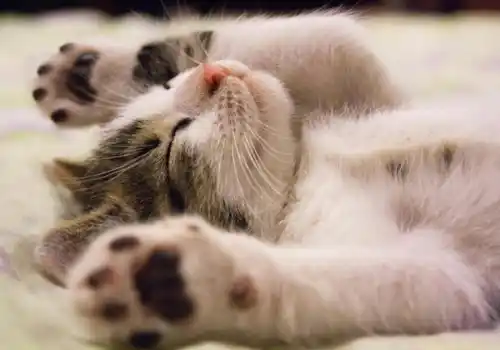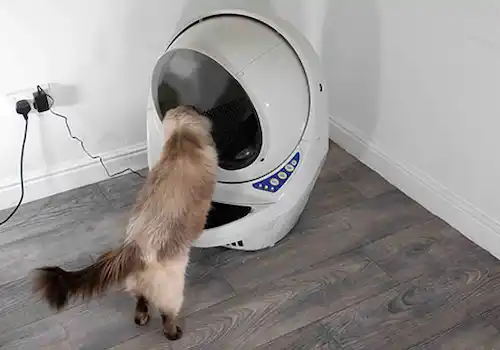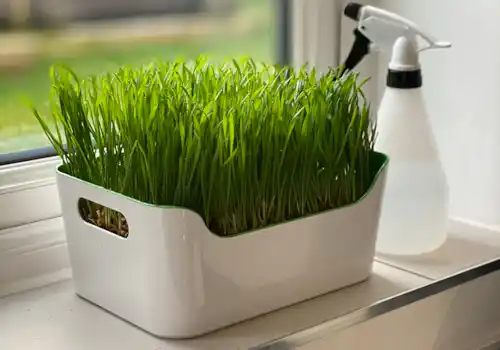Vet Elise Robertson lists all the first aid items you should have at the ready in case of a feline emergency.
If your cat comes home with an injury or wound, it's worth knowing what you can do to help immediately. It's essential to speak to and visit a vet, but there are many first-reponse, first aid treatments that you can administer at home as soon as you notice an injury.
Here, vet Elise Robertson lists everything you should have at the ready in case of an emergency:
- Important telephone numbers, addresses and sat nav details for your local vet surgery, local vet emergency care and a local animal-friendly taxi firm if you're unable to drive
- Liquid dish soap - to wash coat of toxic products (i.e. paint, accidental application of spot-on products not intended for use in cats, oil, tar, etc)
- Scissors - for cutting out things matted in fur or freeing your pet from entanglements
- Sterile eye wash - make sure it is saline emergency eye wash, not contact lens solution. This can be purchased from your local chemist
- Tweezers - these can be used to remove splinters or debris from wounds, especially cat claws embedded into skin after cat fight!
- Tick remover - if you are in a tick-infested area, consider one of many tools to easily remove ticks and reduce additional damage or infection during removal
- Tape - preferably the one-inch white medical tape. Easy to tear off and holds well
- Roll gauze - used for bandaging, an aid to stop bleeding and padding for splints
- Vet wrap - this is a conforming bandage wrap used over an absorbent wound pad or roll gauze. Caution is advised to not wrap this too tight! The best to way to use this product is to unwrap it from the roll, as this will loosen the tension. It can then be lightly applied to the limb over rolled cotton
- Non-stick wound pads - non-stick dressings for bandaging a wound
- Bandage scissors - these scissors have a blunted blade to easily slip between skin and bandage material and not cut the cat's skin
- Antiseptic wash or wipes - look for non-stinging preparations such as chlorhexidine or even dilute salt solution (500ml of bottled water to one teaspoon of salt). Surgical spirits or drinking alcohol is not good for open sores or wounds.
- Pain relief - do not use human prescription or over-the-counter pain medications for pets. Some medications, for example paracetamol, are extremely toxic to cats!
- Latex or plastic exam gloves - for your protection and your pet's protection - use when the situation is messy
- Towel - even the most well-mannered cats may bite when injured or afraid. This will help assist getting an injured cat into a carrier if needed, and also keep them warm
- Digital thermometer - know the normal cat vital signs and how to use the thermometer. This can be helpful when calling your emergency vet
- Water-based lubricating jelly - for use with rectal thermometers
- Ice packs and warm water bottle - cool down skin after a burn or keep an animal warm if hypothermic. Always use a tea towel between the pack and skin and check frequently for redness or irritation
- Extra towels, flannels and a familiar blanket - use for washing, keeping warm/cool, and if necessary, a way to transporting injured cat if no access to transport container
- Syringe -to help flush wounds or administer oral rehydration solutions
- A cat carrier - for safely transporting an injured or frightened cat in car and waiting room at emergency clinic!
- A sturdy box - to hold all of your first aid supplies.
- Spare medicine/copy of prescription - your cat may have a specific medical condition so you may need to include a copy of the prescription as well as spare medicine (a couple days supply) should you need these in an emergency situation. Make sure you rotate these medicines regularly to ensure not expired! An example would include glucose syrup/honey in the event of a low blood sugar episodes in a diabetic cat.
Your vet nurse can also help you customize a first aid kit to meet your cat's medical needs.
Content continues after advertisements
Speak to your vet (or out-of-hours practice) as soon as possible in the case of an emergency.







